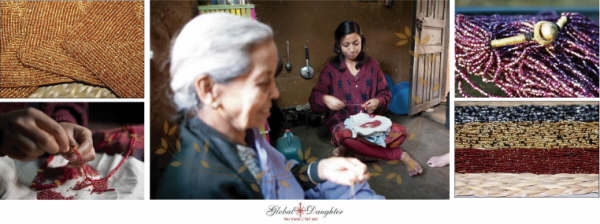
The world is in a hunger crisis. In just three years, the price of staple foods like wheat, corn and rice has almost doubled. If we don't do something soon, hundreds of thousands of people face starvation and a hundred million more could fall into deeper poverty. UN Secretary General Ban Ki-moon said, "The rapidly escalating crisis of food availability around the world has reached emergency proportions."
Violent protests have already taken down the government in Haiti. Similar expressions of frustration and fear have broken out in a dozen countries from Cameroon to Uzbekistan, with experts warning that 33 countries are at risk of social upheaval because of rising food prices.
The question is what can we do now?
This summer, the leaders of the eight wealthiest nations (known as the Group of Eight or G8) will gather in Japan to set a global policy agenda. That agenda must include emergency action against hunger and long-term commitments to tackle the causes of this crisis.
Click the link below to send the following petition to President Bush asking him to rally the G8 to end the hunger crisis as part of an aggressive anti-poverty agenda:
http://www.one.org/hungercrisis/o.pl?id=293-775348-ooM7xA&t=2
http://www.one.org/hungercrisis/o.pl?id=293-775348-ooM7xA&t=2
President Bush,
The soaring cost of staple foods and the resulting hunger crisis has caused riots from Haiti to Bangladesh, threatens hundreds of thousands of people with starvation and could push one hundred million more people deeper into poverty. Please build on your recent commitment by taking immediate action to:
1) Prioritize issues of global poverty, including the world hunger crisis on the agenda of the G8 Summit this July in Japan.
2) At the summit, secure commitments for additional resources for all types of food assistance and increased agricultural productivity in developing countries.
For the world's most vulnerable people, there is no margin for survival. Today in Bangladesh, a 2 kilogram bag of rice costs a poor family half their daily income. If prices keep climbing, they will stop eating.
For the world's most vulnerable people, there is no margin for survival. Today in Bangladesh, a 2 kilogram bag of rice costs a poor family half their daily income. If prices keep climbing, they will stop eating.
By clicking this link, you'll add your name to our petition calling on the G8 to take action to break the cycle of hunger.
http://www.one.org/hungercrisis/o.pl?id=293-775348-ooM7xA&t=3
http://www.one.org/hungercrisis/o.pl?id=293-775348-ooM7xA&t=3
The hunger crisis is a critical part of the anti-poverty agenda we're asking the G8 to take action on. The nations of the G8 need to keep their promise to increase development assistance to poor countries and double aid to Africa. Combined with trade policy changes and support for anti-corruption initiatives, these resources will help poor countries to build better health systems, fight preventable diseases, and achieve education for all. But without solving the hunger crisis, we won't be able to make progress in these other vital areas.
The G8 can start by making sure that the right kinds of food assistance reach people in need even while prices are skyrocketing. Last month, the World Food Program issued an "extraordinary emergency appeal" to donor countries. On Monday, President Bush pledged $200 million on behalf of the United States, which we applaud. This is a step in the right direction, but will not end the crisis. It may not even be enough to keep food programs at their current levels. The G8 should meet this need and must ensure that food assistance providers have the resources and flexibility to be able to buy food in local markets.
The hunger crisis is not going away. Prices will keep rising and more people will go hungry unless we make historic investments to help impoverished countries grow more food. Food assistance needs to be matched with investment in agricultural development to break the cycle of hunger. A comprehensive approach is needed to increase agricultural productivity in poor countries including infrastructure investment, improved technology, and better access to water, seeds, tools and fertilizer.
World Bank President Robert Zoellick estimates that, if left unchecked, global food shortages could set the world back seven years in the fight against extreme poverty and global disease. We must urge our leaders to take action, and call for action from other donor countries, before hunger derails the progress that we've made to end the suffering caused by extreme poverty and global disease.

No comments:
Post a Comment